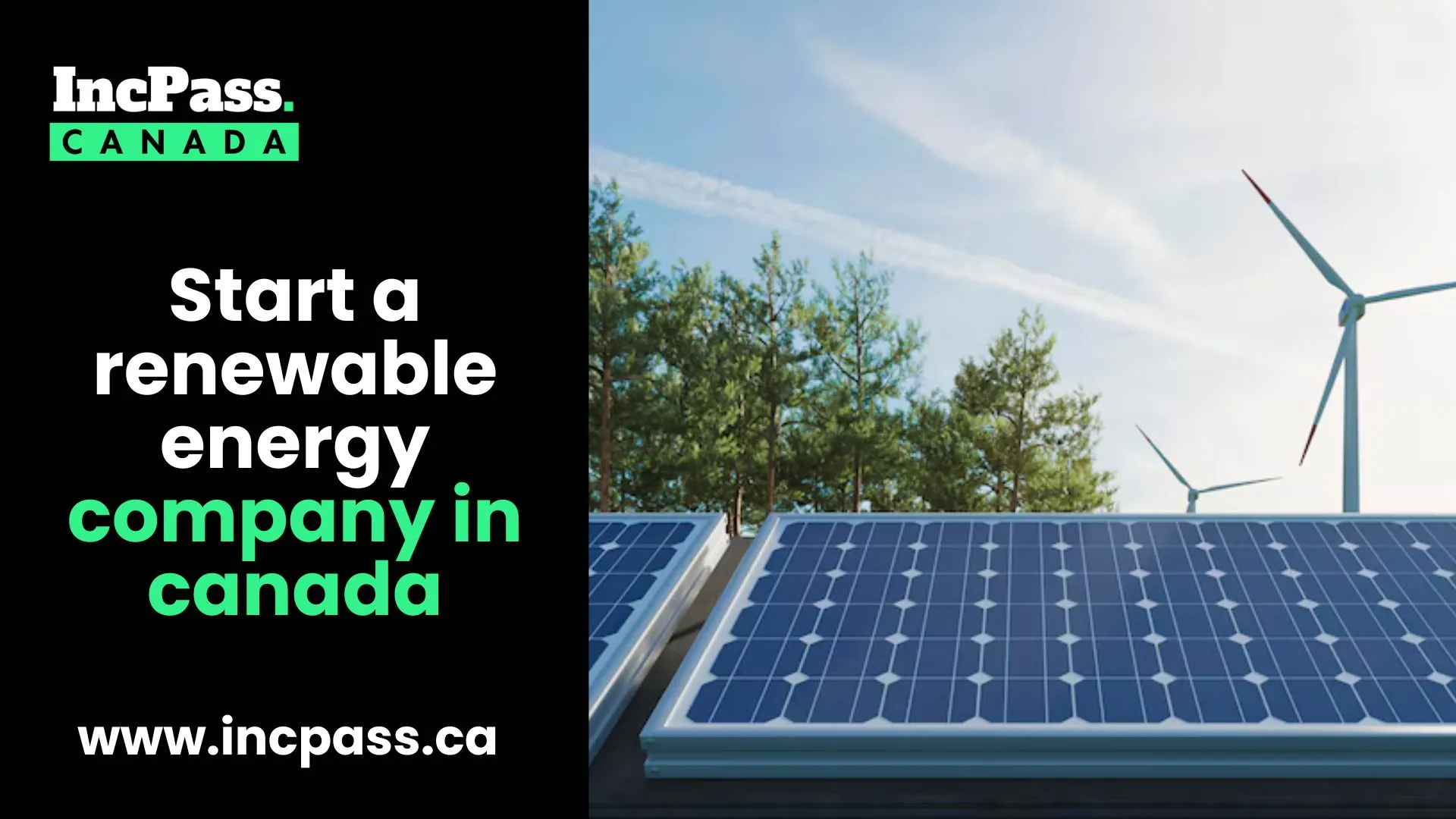Introduction
Starting a renewable energy company in Canada has enormous potential, as the country is one of the top ten producers of renewable energy in the world. In 2022, renewable energy accounted for 68.3% of Canada’s electricity, with hydroelectricity leading at 59.3%.
The federal government aspires to achieve net-zero emissions by 2050, creating major potential for new wind, solar, and bioenergy companies. Entrepreneurs may capitalise on a rapidly increasing sector thanks to multiple government incentives and rising demand for renewable energy.
This post will cover the steps to start a renewable energy business in Canada along with the key renewable energy sectors, challenges and opportunities.
Understanding the Canadian Renewable Energy Market
- Market Trends: The global shift toward sustainability is driving the rapid growth of Canada’s renewable energy sector. As of 2022, renewable energy accounts for 68.3% of total electricity production, with a focus on hydro, wind, and solar energy.
- Growth Potential: With Canada’s pledge to achieve net-zero emissions by 2050, the renewable energy sector is likely to expand significantly. Wind and solar projects are seeing increased investment.
- Opportunities for New Businesses: The developing market in Canada provides a favourable environment for entrepreneurs wishing to start a renewable energy company, which is backed up by federal and provincial subsidies.
Key Renewable Energy Sectors in Canada
- Solar Energy – Solar panel installation, solar farms, and residential solutions
- Wind Energy – Wind farms, small-scale wind turbine installations
- Hydroelectric Energy – Small-scale hydro projects or large hydroelectric developments
- Biomass Energy – Energy from organic materials like wood, agricultural waste, or biogas
- Geothermal Energy – Heat energy extracted from the earth
Steps to Launch a Renewable Energy Company in Canada
The steps to start a renewable energy company in Canada are:
Step 1: Choose the Right Business Structure
Selecting the appropriate business structure is crucial for taxation, liability, and operational flexibility. You can choose from:
- Sole Proprietorship – Easy to set up but offers no liability protection
- Partnership – Best for co-founding with others, but requires clear agreements
- Corporation – A separate legal entity with limited liability protection and tax benefits
Incorporating a company in Canada can be done at the federal or provincial level, depending on your business goals.
Step 2: Register Your Business
Once you’ve decided on your business structure, the next step is to register your business with the relevant authorities:
- Name Registration – Register your company name via Corporations Canada (for federal registration) or through the respective provincial registry (if incorporating at the provincial level).
- Business Number (BN) – Obtain a BN from the Canada Revenue Agency (CRA) for taxation and compliance.
Step 3: Obtain Necessary Licenses
Depending on your energy sector, you may need to obtain permits such as:
- Electricity Generation License (from provincial energy regulators)
- Environmental Assessment Approval (for large-scale projects)
- Zoning and Land Use Permits
Choosing the Right Renewable Energy Source in Canada
Wind energy is ideal for coastal locations and vast plains, especially in Alberta, Saskatchewan, and Nova Scotia. Canada’s wind power capacity is growing, making it a viable option for entrepreneurs wishing to establish a renewable energy company in the country.
Solar Energy is most suited to places with strong solar exposure, such as Southern Ontario and British Columbia’s Interior. The lower cost of solar panels and increased efficiency make solar energy an appealing option for new enterprises.
Hydroelectric power is predominant in areas such as Quebec, British Columbia, and Manitoba due to plentiful water resources. While hydroelectricity is a substantial addition to Canada’s renewable energy portfolio, establishing a new hydro project necessitates significant investment and governmental permission.
Bioenergy projects thrive in agricultural and forestry-rich regions such as Ontario and the Prairies. Bioenergy, which makes use of organic waste and biomass, provides a long-term solution that also reduces waste.
For entrepreneurs looking to start a renewable energy company in Canada, the best energy source is determined by regional resources, market demand, and the regulatory climate.
Challenges and Opportunities in the Canadian Renewable Energy Industry
- Regulatory Difficulties: Navigating federal and provincial rules can be difficult, needing permissions and compliance with environmental assessments, which can cause delays in projects for those trying to start a renewable energy company in Canada.
- Competition: Established businesses such as Hydro-Québec dominate the industry, making it harder for newcomers to compete on larger projects.
- Emerging Opportunities: As Canada strives to achieve net-zero emissions by 2050, demand for novel wind, solar, and bioenergy solutions is increasing. Advancements in energy storage and system modernization provide further opportunities for emerging firms to prosper in a changing market.
Conclusion
Starting a renewable energy company in Canada provides a unique opportunity to contribute to the country’s sustainability goals while also tapping into a burgeoning industry. Canada has a favourable climate for renewable energy enterprises due to its abundance of natural resources, strong government incentives, and commitment to attaining net-zero emissions by 2050. To thrive, entrepreneurs must carefully manage legal restrictions, select the most appropriate energy source for their region, and acquire funding. By creating a talented team and taking advantage of available incentives, new firms can succeed in Canada’s renewable energy sector, fostering innovation and environmental progress.
FAQs
What are the primary renewable energy sources in Canada?
Hydroelectricity, wind, solar, and biofuel are the principal sources in Canada, with hydroelectricity producing the most.
What approvals are required to establish a renewable energy business in Canada?
Permits differ by province and project type, but most include environmental studies and building clearances.
What is the cost to start a renewable energy company in Canada?
The cost depends on the energy source and the size of the project, but government grants and tax credits assist cover the initial outlay.
What are the finest regions in Canada for renewable energy projects?
Wind projects work well in Alberta and the Prairies, whereas solar works best in Southern Ontario. In Quebec and British Columbia, hydroelectric power is dominant.





